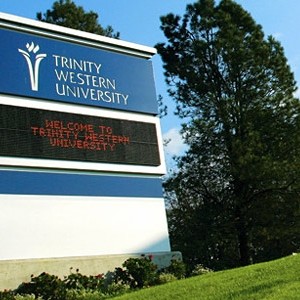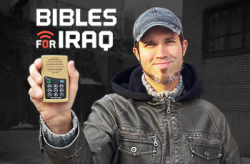 HALIFAX, Nova Scotia — An appeals court in Nova Scotia has ruled that a legal society in the province did not have the authority to deny accreditation to a Christian law school over its biblical beliefs about the institution of marriage.
HALIFAX, Nova Scotia — An appeals court in Nova Scotia has ruled that a legal society in the province did not have the authority to deny accreditation to a Christian law school over its biblical beliefs about the institution of marriage.
As previously reported, Trinity Western University had filed suit in October 2014 after the Nova Scotia Barrister’s Society (NSBS) refused to recognize graduates as being attorneys until the Christian institution changed its policy on sexuality.
“According to the Bible, sexual intimacy is reserved for marriage between one man and one woman, and within that marriage bond it is God’s intention that it be enjoyed as a means for marital intimacy and procreation,” the university policy reads. “Honoring and upholding these principles, members of the TWU community strive for purity of thought and relationship, respectful modesty, personal responsibility for actions taken, and avoidance of contexts where temptation to compromise would be particularly strong.”
Students and staff must sign a covenant committing to personally uphold these lifestyle standards.
In January 2015, the Nova Scotia Supreme Court court found that the Society did not properly protect the religious freedom of the school as required by the Canadian Charter of Rights and Freedoms.
“I have concluded that the NSBS did not have the authority to do what it did,” wrote Justice Jamie Campbell. “I have also concluded that even if it did have that authority it did not exercise it in a way that reasonably considered the concerns for religious freedom and liberty of conscience.”
But last month, the Ontario Court of Appeals disagreed and ruled that Trinity Western University’s standards were discriminatory and compared the matter to the 1983 U.S. Supreme Court ruling over Bob Jones University’s opposition to interracial marriage.
“The Covenant is a document that discriminates against LGBTQ persons by forcing them to renounce their dignity and self-respect in order to obtain an education,” read the opinion written by Justice James MacPherson, with concurrence by Justices Eleanore Cronk and Gladys Pardu. “The LSUC’s decision not to accredit TWU was indeed a reasonable conclusion.”
The university appealed the decision to the Nova Scotia Court of Appeals, and on Tuesday, the panel reversed the Ontario Court’s ruling. The court found that the Society didn’t have the authority to determine whether the school’s covenant comported with Nova Scotia’s Human Rights Act.
“Trinity Western’s activity occurred in British Columbia, and was outside the reach of Nova Scotia’s Human Rights Act. As a private university, Trinity Western was not subject to the charter of rights,” it ruled. “Trinity Western did not act ‘unlawfully’ under either enactment.”
“Nothing in the Legal Profession Act authorizes the Society to issue an independent ruling that someone has violated Nova Scotia’s Human Rights Act,” the court concluded. “It is inconceivable that the legislature, without expressing a supportive word in either the Legal Profession Act or the Human Rights Act, intended that the Society’s Council could assert for itself an autonomous jurisdiction concurrent with that of a human rights board of inquiry.”
The university says that it is pleased with the ruling.
“Everyone, religious or not, should celebrate this decision, which amounts to a protection of our freedom and our identity,” Spokeswoman Amy Robertson said in a statement. “The community covenant is a core part of defining the TWU community as distinctly Christian.”
The Society is considering appealing to the Supreme Court of Canada, as it opines that “the admission requirements … are a concern.”
A special message from the publisher…
 Dear Reader, our hearts are deeply grieved by the ongoing devastation in Iraq, and through this we have been compelled to take a stand at the gates of hell against the enemy who came to kill and destroy. Bibles for Iraq is a project to put Arabic and Kurdish audio Bibles into the hands of Iraqi and Syrian refugees—many of whom are illiterate and who have never heard the gospel.Will you stand with us and make a donation today to this important effort? Please click here to send a Bible to a refugee >>
Dear Reader, our hearts are deeply grieved by the ongoing devastation in Iraq, and through this we have been compelled to take a stand at the gates of hell against the enemy who came to kill and destroy. Bibles for Iraq is a project to put Arabic and Kurdish audio Bibles into the hands of Iraqi and Syrian refugees—many of whom are illiterate and who have never heard the gospel.Will you stand with us and make a donation today to this important effort? Please click here to send a Bible to a refugee >>



